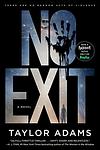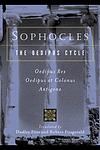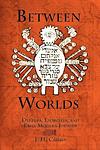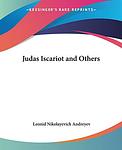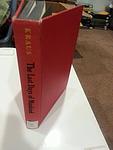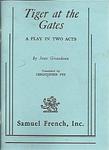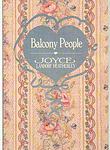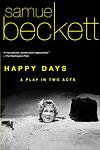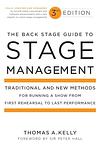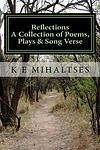The Greatest Russian, French, Austrian "Plays, Fiction" Books Since 1900
Click to learn how this list is calculated.
This list represents a comprehensive and trusted collection of the greatest books. Developed through a specialized algorithm, it brings together 305 'best of' book lists to form a definitive guide to the world's most acclaimed books. For those interested in how these books are chosen, additional details can be found on the rankings page.
Genres
Plays are a category of literature that consists of written works intended for performance on stage. They typically feature dialogue between characters and are structured into acts and scenes. Plays can be comedic, tragic, or a combination of both, and often explore themes such as love, power, and morality. They are meant to be performed by actors in front of an audience, and can be enjoyed both as written works and as live performances.
Countries
Date Range
Reading Statistics
Click the button below to see how many of these books you've read!
Download
If you're interested in downloading this list as a CSV file for use in a spreadsheet application, you can easily do so by clicking the button below. Please note that to ensure a manageable file size and faster download, the CSV will include details for only the first 500 books.
Download-
1. The Cherry Orchard by Anton Chekhov
"The Cherry Orchard" is a classic play about an aristocratic Russian woman and her family as they return to their family estate, which includes a large and well-known cherry orchard. The family is on the brink of financial ruin and the estate is slated to be auctioned off. Despite various attempts to save their beloved home and orchard, they are ultimately unable to prevent the sale. The play is a poignant reflection on the changing social order and the decline of the aristocracy in Russia at the turn of the 20th century.
The 455th Greatest Book of All Time -
2. Three Sisters by Anton Chekhov
"Three Sisters" is a play that revolves around the lives of three sisters, Olga, Masha, and Irina, who live in a provincial Russian town and yearn for their former life in Moscow. The story explores their relationships, dreams, and disappointments, as well as their interactions with the military officers stationed nearby. The narrative is a poignant exploration of love, loss, and the relentless passage of time, highlighting the human struggle for meaning and happiness.
The 657th Greatest Book of All Time -
3. The Bald Soprano by Eugène Ionesco
"The Bald Soprano" is a play that explores the absurdity of everyday life through a nonsensical narrative. It revolves around two middle-class English couples, the Smiths and the Martins, who engage in meaningless and repetitive conversations. The play is known for its unconventional structure, lack of plot, and the characters' surreal behavior, which are all used to satirize the banality and futility of routine and social norms. The title refers to a character who is never seen or mentioned again after the opening scene.
The 1565th Greatest Book of All Time -
4. No Exit by Jean Paul Sartre
The book is a profound existentialist play that delves into the human psyche and the concept of hell through the experiences of three deceased characters who find themselves trapped together in a mysterious, windowless room. As they engage in intense psychological games and confront the worst aspects of their earthly behaviors, they come to the harrowing realization that their torment comes not from any external punishment, but from each other and the eternal company they are forced to keep. The narrative explores themes of freedom, responsibility, and the often unbearable nature of human existence, encapsulated in the famous line, "Hell is other people."
The 1649th Greatest Book of All Time -
5. The Satin Slipper by Paul Claudel
"The Satin Slipper" is a complex and symbolic narrative that explores the themes of love, faith, and destiny. Set in the 16th century, the story revolves around two characters, a Spanish conquistador and a married lady of the Spanish court, who are deeply in love but are kept apart by their respective duties and responsibilities. Their love story is intertwined with historical events and mythical elements, creating a rich tapestry of human emotions and spiritual contemplations.
The 2046th Greatest Book of All Time -
6. Marivaux: Three Plays by Pierre Carlet de Chamblain de Marivaux
"Marivaux: Three Plays" is a collection of three significant works by a renowned 18th-century French playwright. The plays explore themes of love, deception, and class in the context of French society of the time. The characters are often caught in complex situations that test their moral values and emotional resilience, providing readers with a profound understanding of human nature and societal norms. The plays are known for their sophisticated language, psychological depth, and intricate plot twists, making them a classic in French literature.
The 2217th Greatest Book of All Time -
7. The Lower Depths by Maxim Gorky
The book is a stark depiction of the lives of the impoverished and dispossessed at the bottom of the Russian social ladder in the early 20th century. Set in a squalid shelter, it presents a group of destitute individuals from various backgrounds—thieves, prostitutes, and the down-and-out—who share their stories and philosophies as they grapple with the harsh realities of poverty and survival. The narrative delves into themes of human suffering, the struggle for dignity, and the elusive nature of truth, offering a grim commentary on the social conditions of the time and the human condition itself.
The 3018th Greatest Book of All Time -
8. Antigone by Jean Anouilh
The play is a modern adaptation of the classic Greek tragedy, which follows the story of Antigone, the daughter of Oedipus, as she defies the laws of the state to bury her brother Polynices, who has been declared a traitor and whose body has been condemned to remain unburied. Antigone's actions set her at odds with Creon, the ruler of Thebes, leading to a profound exploration of the conflict between individual conscience and state law, the role of fate, and the nature of morality. As Antigone's resolve leads her to tragic consequences, the play delves into themes of loyalty, honor, and the human cost of absolute power.
The 3033rd Greatest Book of All Time -
9. The Complete Writings of Alfred de Musset by Alfred de Musset
This comprehensive collection encompasses the entire body of work by a renowned French dramatist, poet, and novelist. The book includes his most famous plays, lyrical poetry, and novels, all of which are characterized by romantic themes and a deep exploration of human emotions. His writings, often autobiographical, offer a vivid portrayal of the 19th century French society, its morals, and its decadence. The author's keen observations, wit, and mastery of language make his works enduring classics of French literature.
The 3067th Greatest Book of All Time -
10. Three plays: The hostage, Crusts, The humiliation of the father by Paul Claudel
This collection of three plays offers a deep exploration of human emotions, societal norms and familial relationships. The first play, 'The Hostage', revolves around the complexities of love and sacrifice. The second play, 'Crusts', delves into the struggles of poverty and the human spirit's resilience. The final play, 'The Humiliation of the Father', portrays the dynamics of a dysfunctional family and the impact of parental behaviour on children. Each play, while distinct in their narratives, collectively provides a profound commentary on human nature and society.
The 3096th Greatest Book of All Time -
11. The Dybbuk by S. Ansky
The book is a seminal work in Yiddish literature and folklore, centering around the concept of a dybbuk—a malicious possessing spirit from Jewish mythology. The narrative follows the tragic tale of a young bride in a Polish shtetl who becomes possessed by the restless spirit of her dead lover, who had been wronged by his own father and her father's broken pledge. The possession leads to a dramatic exorcism and a series of events that explore themes of love, betrayal, and the clash between the mystical and the rational, as well as the boundaries of life and death. The story delves into the rich tapestry of Jewish mysticism, community, and tradition, reflecting the cultural and religious tensions of Eastern European Jews before the First World War.
The 4478th Greatest Book of All Time -
12. Judas Iscariot by Leonid Andreyev
The book presents a reimagining of the character of Judas Iscariot, traditionally known as the betrayer of Jesus Christ. It delves into the psychological and moral complexities of Judas, exploring his inner turmoil, motivations, and the factors that may have led him to commit the act of betrayal. The narrative seeks to humanize Judas, offering a nuanced perspective that challenges the conventional vilification he has received throughout history. Through this character study, the book examines themes of guilt, redemption, and the nature of evil, ultimately raising questions about free will and the role of individuals within the grander schemes of destiny and divine plans.
The 4681st Greatest Book of All Time -
13. The Last Days of Mankind by Karl Kraus
"The Last Days of Mankind" is a satirical play that provides a critical commentary on the socio-political climate during World War I. The narrative presents a stark portrayal of the absurdity of war and the destructive forces of propaganda, bureaucracy, and nationalism. The author uses a variety of literary techniques, including parody, satire, and direct quotes from contemporary sources, to highlight the folly and tragedy of war. The play is known for its unique style, rich language, and its profound critique of society and culture during a time of great upheaval and conflict.
The 4699th Greatest Book of All Time -
14. Tiger At The Gates by Jean Giraudoux
"Tiger at the Gates" is a play that presents a pacifist perspective on the Trojan War, focusing on the character of Hector, a Trojan military leader who foresees the destruction that war with Greece will bring. Despite his efforts to avoid conflict through diplomacy and reason, he is met with ridicule and pressure from his fellow Trojans, who are eager for battle and glory. The narrative explores themes of fate, individual versus collective responsibility, and the tragic consequences of war, as Hector's attempts to maintain peace ultimately fail, leading to the inevitable fall of Troy.
The 5294th Greatest Book of All Time -
15. Kaspar and Other Plays by Peter Handke
"Kaspar and Other Plays" is a collection of avant-garde, thought-provoking plays that explore deep philosophical questions about language, reality, and the human condition. The titular play tells the story of a young man who learns to speak and, in doing so, is manipulated and controlled by society. The other plays in the collection continue to challenge conventional ideas and push boundaries, offering a unique and profound commentary on the world.
The 5758th Greatest Book of All Time -
16. The Balcony by Jean Genet
"The Balcony" is a play set within a brothel that doubles as a fantasy realm for its clients, who act out their grandiose illusions of power as figures like a bishop, a judge, and a general. As a revolution rages in the streets outside, the establishment's madam and her patrons grapple with the nature of authority and reality, blurring the lines between the authentic and the performative. The play delves into themes of identity, societal roles, and the corrupting influence of power, offering a dark, existential critique of the structures that uphold the facade of societal order and the human desire to escape into illusion.
The 5963rd Greatest Book of All Time -
17. The Chairs by Eugène Ionesco
"The Chairs" is a tragic farce that delves into the themes of existentialism and the absurdity of human existence. The play unfolds as an elderly couple prepares a room full of chairs for a gathering of invisible guests. They are eagerly anticipating the arrival of an orator who will deliver a message of great importance, believed to be the culmination of their life's work. As the room fills with more and more chairs for guests that never appear, the play reaches a climax with the orator's arrival, only to reveal the futility of their expectations and the inherent emptiness of communication. The couple's desperate need for validation and their ultimate failure to convey meaning reflect the human condition's search for purpose in a senseless world.
The 7002nd Greatest Book of All Time -
18. Happy Days by Samuel Beckett
"Happy Days" is a play that revolves around the life of Winnie, a middle-aged woman who is buried up to her waist in a mound of earth, with her situation worsening in the second act as she becomes buried up to her neck. Despite her predicament, Winnie maintains a sense of optimism and routine, often reminiscing about the past and engaging in one-sided conversations with her taciturn husband, Willie, who is largely invisible offstage. The play delves into themes of human resilience, the passage of time, and the search for meaning in the face of an absurd and unchanging predicament, with Winnie's relentless cheerfulness contrasted against the bleak and inexplicable situation she finds herself in.
The 7004th Greatest Book of All Time -
19. The Rehearsal by Jean Anouilh
"The Rehearl" is a play that delves into the complex interplay between reality and performance, set against the backdrop of a 17th-century French court. The narrative revolves around a group of actors who are rehearsing a play about the love affair between the Count and the Countess. As the actors immerse themselves in their roles, the boundaries between their real lives and the characters they portray begin to blur. The Countess's own brother, who is directing the play, manipulates the situation, leading to a dramatic intertwining of life and art that questions the nature of truth and illusion. The play explores themes of love, power, and the artifice inherent in both theater and life itself.
The 7193rd Greatest Book of All Time -
20. The Lesson by Eugène Ionesco
"The Lesson" is a darkly comedic one-act play that explores themes of power, absurdity, and education. It revolves around a Professor who tutors a young, enthusiastic Pupil in preparation for a totalizing examination. As the lesson progresses, the initially benign academic session descends into a surreal and oppressive ordeal. The Professor's pedantic instruction becomes increasingly authoritarian and nonsensical, leading to a climax that exposes the dangers of indoctrination and the grotesque potential of authority figures to abuse their power. The play is a poignant critique of totalitarian systems and the absurdities inherent in dogmatic approaches to knowledge and learning.
The 7193rd Greatest Book of All Time -
21. Amédée by Eugène Ionesco
The play revolves around the bizarre situation of a couple living with the growing corpse of the husband's friend, Amédée, in their apartment. As the body inexplicably continues to expand, it causes increasing inconvenience and absurdity in their lives. The husband, a failed playwright, and his wife struggle with their mundane existence, their inability to dispose of the corpse, and the surreal events that unfold. The narrative explores themes of stagnation, guilt, and the absurdity of life, as the couple's surreal predicament serves as a metaphor for the inescapable, often grotesque, complexities of the human condition.
The 7193rd Greatest Book of All Time -
22. Victims Of Duty by Eugène Ionesco
"Victims of Duty" is a play that delves into the absurdity of the human condition through a surreal and satirical narrative. The story revolves around a couple whose quiet evening is interrupted by the arrival of a detective, who is on a quest to find the protagonist's predecessor in their apartment. As the detective pressures the protagonist to recall past events, the play descends into a chaotic and nonsensical investigation, blending reality with illusion. The work critiques societal obligations and the search for meaning, ultimately questioning the nature of truth and the role of individuals within the constructs of duty and authority.
The 7193rd Greatest Book of All Time -
23. Poems And Verse Plays by Hugo von Hofmannsthal
This collection brings together an exquisite array of poetry and dramatic works by a prominent figure in the literary world, known for his pivotal role in the development of modernist literature in the German-speaking world. The book showcases the author's linguistic virtuosity and deep understanding of the human condition, with poems that range from the lyrical to the symbolic, and verse plays that explore themes of identity, existential angst, and the interplay between reality and illusion. The works within this compilation reflect the author's evolution as a writer and his ability to blend classical motifs with contemporary concerns, offering readers a rich tapestry of introspective and philosophical musings.
The 7193rd Greatest Book of All Time -
24. Selected Plays And Libretti by Hugo von Hofmannsthal
This collection brings together a selection of dramatic works by a prominent figure in the early 20th-century literary world, showcasing his talent for blending poetic language with profound psychological insight. The plays and libretti included span various genres, from historical dramas to adaptations of classic myths, each marked by the author's exploration of themes such as identity, transformation, and the human condition. The works also reflect the author's collaboration with influential composers of his time, contributing to the evolution of opera and theater through his innovative approach to storytelling and character development.
The 7193rd Greatest Book of All Time -
25. Plays And Stories by Arthur Schnitzler
"Plays and Stories" is a collection that showcases the work of a prominent writer known for his incisive exploration of psychology and morality in turn-of-the-century Viennese society. The book brings together a selection of his dramatic and narrative pieces, each delving into the complex lives and intimate struggles of its characters. Through a blend of sharp dialogue, intricate character studies, and a keen observation of social mores, the collection reveals the subtle forces at play in love, desire, and power, often highlighting the ironic twists of fate that can alter the course of an individual's life. The writer's work is celebrated for its nuanced depiction of the human condition and its influence on modernist literature.
The 7193rd Greatest Book of All Time
Reading Statistics
Click the button below to see how many of these books you've read!
Download
If you're interested in downloading this list as a CSV file for use in a spreadsheet application, you can easily do so by clicking the button below. Please note that to ensure a manageable file size and faster download, the CSV will include details for only the first 500 books.
Download


